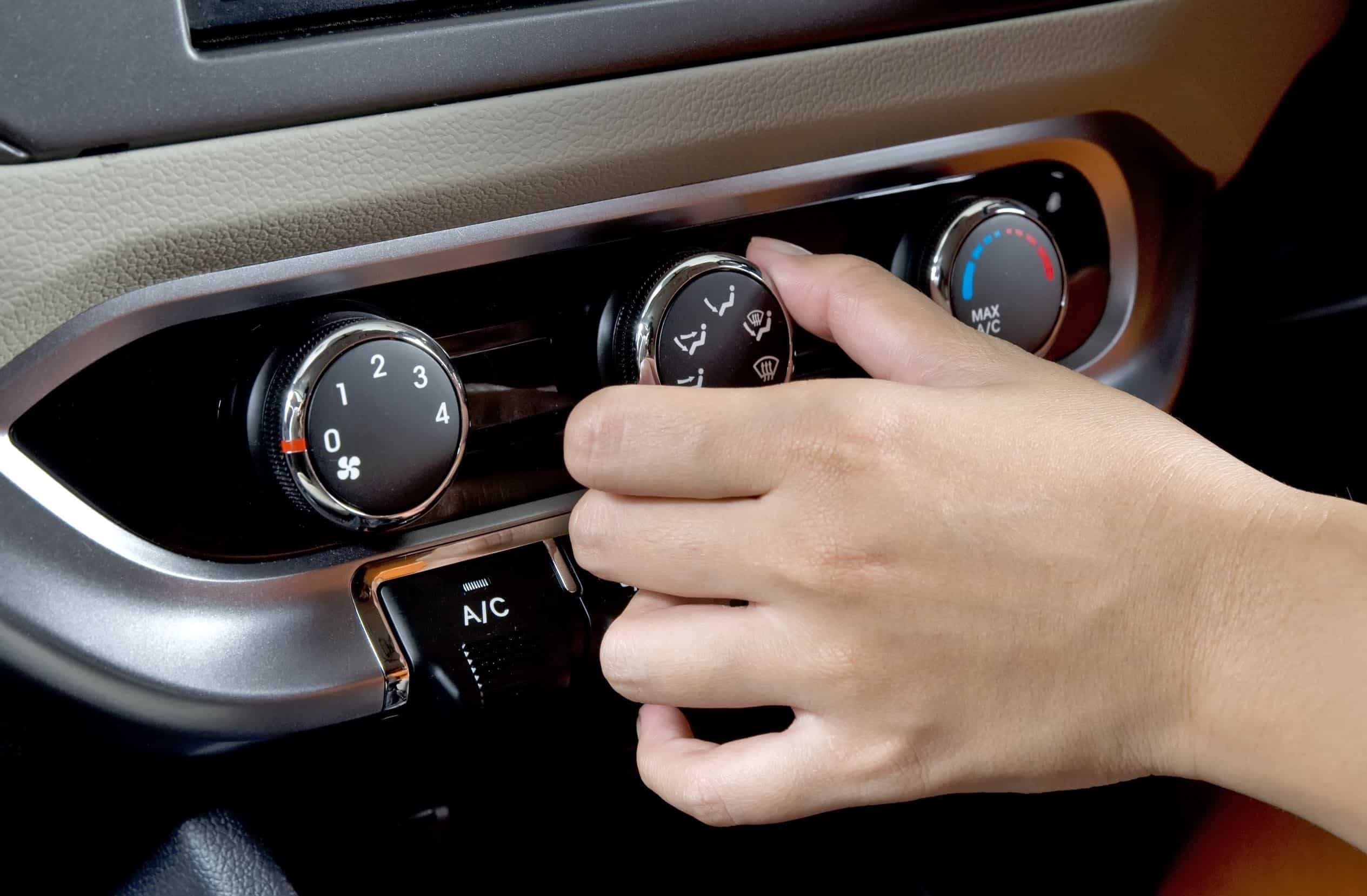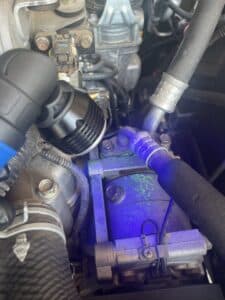
04 Feb Car AC Frequently Asked Questions
Welcome to the World of Car Air Conditioning: Car AC Frequently Asked Questions Answered!
Car AC Frequently Asked Questions. Ever wondered “What goes on in my car’s air conditioning system?” In the heat of Brisbane and Bayside more than ever, you count on your cool interiors as you cruise down Redland City. By popular demand, we have collated the most commonly asked questions about car air conditioning. Get ready – myth-busting and nuggets of cool wisdom coming up!
Picture the scene: It’s the middle of a hot summer’s day in beautiful Brisbane, Australia. You’re gearing up for a road trip across Bayside, or maybe just a day trip around the scenic beach towns. Whatever the occasion, one thing is certain – you want to feel that cool, crisp, air-con breeze sweeping through your car’s interior, ensuring your journey is as comfortable as possible.
But many car owners, particularly those hailing from the sun-soaked terrains of Redland City, often find themselves a little perplexed about the mysteries swirling in their vehicle’s air conditioning system. Questions arise such as what goes behind the cold gust that gets emitted when you press that ‘A/C’ button? What causes the sudden dips in cooling efficiency? And the all-important question for those DIY enthusiasts, could you possibly service the air conditioning system yourself?
Fear not because today, we’re breaking down the ice-cold world of your car’s cooling companion. These Car AC Frequently Asked Questions will cool down your doubts, chill your misconceptions, and have you cruising coolly in no time. Expect everything – the simple to the complex, the quirky to the essential, the common to the lesser-known. Whether you are a first-time car owner or a seasoned driver- this post is guaranteed to make you a Car Air Conditioning savant! So, roll your windows up and let’s dive right into the frosty facts of your auto air conditioning system.
What exactly does Car Air Conditioning Maintenance entail?
Maintenance tasks generally include:
- Checking system pressures: quintessential in detecting leaks or damage.
- Cleaning condenser fins: keeping them free from dust and debris ensures smooth refrigerant carries heat away.
- Checking and adjusting drive belts and pulleys: keeps the compressor running optimally.
- Carry out Car Aircon Leak Testing: to prevent unpleasant whiffs or deterioration of cooling efficiency.
What are common signs my car could need a Vehicle Air Conditioning Inspection?
Look out for these symptoms:
- Unexpectedly high fuel consumption: running on an inefficient system burdens the engine, leading to increased fuel usage.
- Inconsistent cooling: indicates a potential refrigerant leak.
- Odd noises when the A/C is on; could be a sign of a damaged compressor.
- Unpleasant odours: bacterial build-ups can result in bad smells emanating from your A/C.
Are all Refrigerants the same, and can I switch between R134a and R1234yf?
While R134a and R1234yf perform the same function, your manufacturer recommends a specific one for your car. Swapping refrigerants can lead to inefficient cooling and damage your auto air conditioning system.
Why do new A/C systems use R1234yf instead of R134a?
R1234yf sports a lower Global Warming Potential (GWP), making it the refrigerant of choice for newer models. However, the switch can’t be made in older vehicles designed for R134a.
DIY Car Air Conditioning: A Fresh Cool Breeze or a Recipe for Disaster?
While a ‘Do It Yourself’ approach can often save you money, when it comes to Car Air Conditioning Maintenance, it’s a road that can lead to chilly regrets if not travelled with caution. Brisbane heat can be unforgiving, and so can the complexities of a car A/C system. Here’s what every enthusiastic DIYer in Redland City, Bayside, and beyond should know:
Can you handle the basics?
Sure, there are tasks you can do yourself to ensure your vehicle’s cooling is not put on ice:
- Replace or clean the air filter: Doing so can help your cabin air stay fresh and improve airflow.
- Clean external debris: Leaves and debris stuck in the vents? A simple cleaning could improve air circulation.
When should you pass the coolant gauntlet to the pros?
Car Aircon Leak Testing and replacing refrigerants need expert knowledge and equipment. Here’s why:
- Specialized tools: Leak testing often requires UV dyes and professional-grade tools.
- Safety: Incorrect handling of refrigerant, whether it’s R134a or R1234yf, can be hazardous.
- System knowledge: Understanding the pressures and functioning of different components is not a layman’s game.
Why might DIY cost more in the end?
Taking a mistaken step like using the wrong refrigerant or creating unseen leaks can lead to:
- Damage: You could inadvertently cause irreversible damage to the system.
- Efficiency loss: A poorly performed service could knock down your system’s efficiency, leading to higher running costs.
- Void warranty: Unprofessional touch-ups may void your manufacturer’s warranty.
So, unless you’re confident in your knowledge of Auto Air Conditioning Systems, and ready to invest in the right tools, you might just want to leave the heavy lifting to the experts. Remember, Keepin Cool Auto Air Conditioning is just a quick SMS away, and we’ll offer you all the car A/C solutions you need, right here in Brisbane!

Car Air Conditioning Leak Detection
What services do professional Car Air Conditioning Services offer?
At Keepin Cool Auto Air Conditioning, we offer an extensive range of mobile services, so you never have to compromise on your comfort:
- Mobile Car AC Regassing: Replacing lost refrigerant from your system for optimal cooling.
- Mobile Car AC Repairs: We take on all types of A/C repairs, from minor leaks to significant component replacements.
- Mobile Car AC Service: Comprehensive servicing to ensure your comfort isn’t compromised.
- Mobile Car AC Compressor Replacement: Prevention of loss in cooling capabilities and potential damage to other components.
- Mobile Car AC Hose Repairs: Repairing hoses before leaks deteriorate your A/C’s performance.
- Mobile Car AC Inspection: Full inspection of your vehicle’s A/C system.
Now, armed with your newfound knowledge, you can confidently make decisions about your car’s air conditioning requirements. Stay cool and remember, professional help is just a quick SMS away for a Quick SMS Quote!
Car AC Frequently Asked Questions
- What does Car Air Conditioning Maintenance include?
- Maintenance usually involves checking system pressures, cleaning condenser fins, adjusting drive belts and pulleys, and conducting leak tests.
- What are the common signs that my car needs an Air Conditioning inspection?
- Unexpected high fuel consumption, inconsistent cooling, odd noises when the A/C is on, and unpleasant odours may signal a need for an inspection.
- Are all Refrigerants the same, and can they be switched between R134a and R1234yf?
- While R134a and R1234yf serve the same function, switching between them is not recommended as your manufacturer specifies a certain type for your car. Using the wrong refrigerant can cause damage.
- Why do new A/C systems use R1234yf instead of R134a?
- R1234yf has a lower Global Warming Potential (GWP) than R134a. Manufacturers of new cars often prioritize environmental concerns, hence the switch.
- What services do professional Car Air Conditioning Services offer?
- At Keepin Cool Auto Air Conditioning, we offer a range of services including mobile car AC regassing, repairs, service, and compressor replacement, hose repairs, and air conditioning inspection.
- How long does Car Air Conditioning Service take?
- A standard service can take approximately 1-2 hours, depending on the car model and the current condition of the system.
- Can I run my car’s A/C without refrigerant?
- It’s not advisable because it could cause severe system damage.
- What contributes to the bad odour from my car’s A/C?
- Primarily, the odour comes from the build-up of mould, mildew, or bacteria.
- Is frequent Car Aircon Leak Testing necessary?
- Yes. Regular testing maintains system efficiency and prevents unexpected repair costs.
- What damage can the wrong Refrigerant cause to my system?
- Incorrect refrigerant can decrease cooling efficiency and damage the compressor, seals, and other A/C components.
- Can I DIY my Car Air Conditioning Maintenance?
- While some tasks are manageable, others require extensive knowledge and safety protocols that professionals have.
- How often should I service my car’s A/C system?
- Most manufacturers recommend a service every two years. Regular servicing prolongs system life and efficiency.

